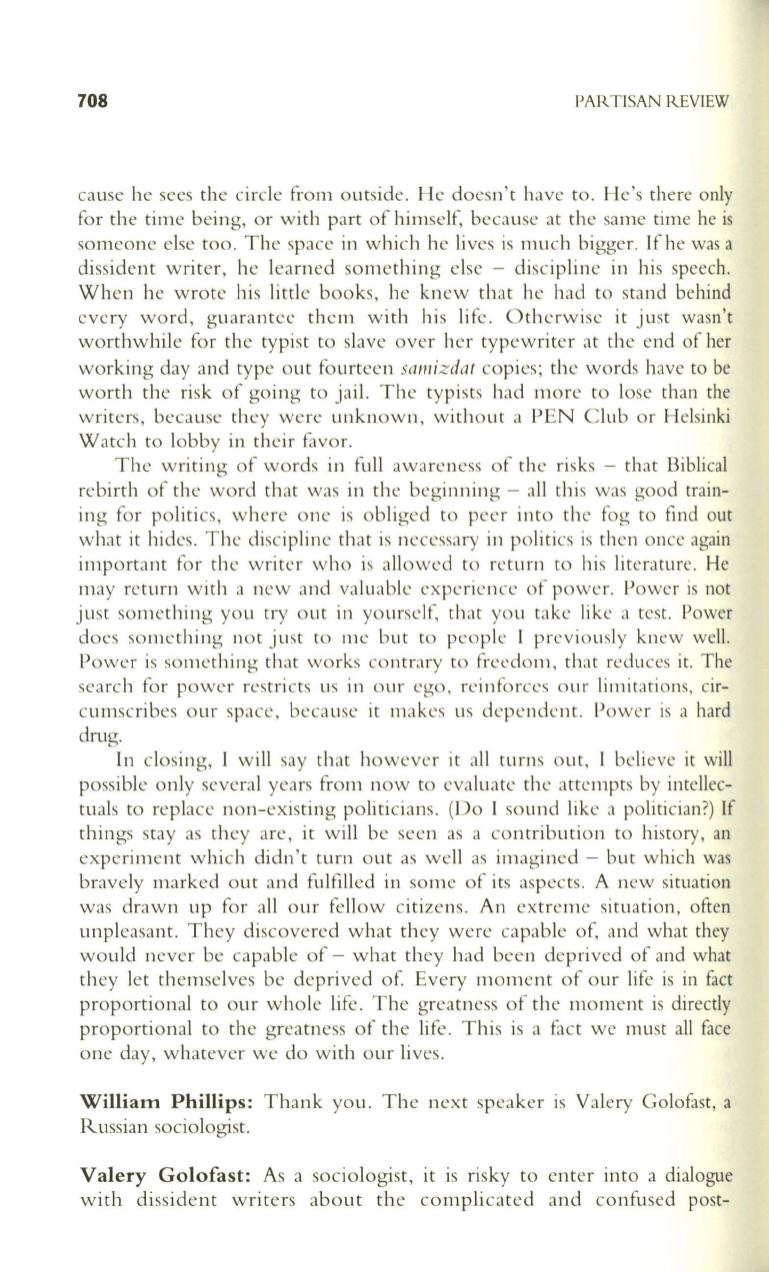
708
PAR.TISAN REVIEW
cause he sees the circle from outside. He doesn't have
to.
He's there only
for the time being, or with part of himself, because at the same time he is
someone else too. The space in which he lives is much bigger. If he was a
dissident writer, he learned something else - discipline in his speech.
When he wrote his little books, he knew that he had to stand behind
every word, guarantee them with his life. Otherwise it just wasn't
worthwhile for the typist to slave over her typewriter at the end of her
working day and type out fourteen
samizdat
copies; the words have to be
worth the risk of going to jail. The typists had more to lose than the
writers, because they were unknown, without a PEN Club or Helsinki
Watch to lobby in their favor.
The writing of words in full awareness of the risks - that Biblical
rebirth of the word that was in the beginning - all this was good train–
ing for politics, where one is obliged to peer into the fog to find out
what it hides. The discipline that is necessary in politics is then once again
important for the writer who is allowed to return to his literature. He
may return with a new and valuable experience of power. Power is not
just something you tryout in yourself, that you take like a test. Power
does something not just
to
me but to people I previously knew well .
Power is something that works contrary to freedom, that reduces it. The
search for power restricts us in our ego, reinforces our limitations, cir–
cumscribes our space, because it makes us dependent. Power is a hard
drug.
In closing, I will say that however it all turns out, I believe it will
possible only several years from now to evaluate the attempts by intellec–
tuals to replace non-existing politicians. (Do I sound like a politician?) If
things stay as they are, it will be seen as a contribution to history, an
experiment which didn't turn out as well as imagined - but which was
bravely marked out and fulfilled in some of its aspects. A new situation
was drawn up for all our fellow citizens. An extreme situation, often
unpleasant. They discovered what they were capable of, and what they
would never be capable of - what they had been deprived of and what
they let themselves be deprived of. Every moment of our life is in fact
proportional to our whole life. The greatness of the moment is directly
proportional to the greatness of the life. This is a fact we must all face
one day, whatever we do with our lives.
William Phillips:
Thank you. The next speaker is Valery Golofast, a
Russian sociologist.
Valery Golofast:
As a soc iologist, it is risky
to
enter into a dialogue
with dissident writers about the compli cated and confused post-


